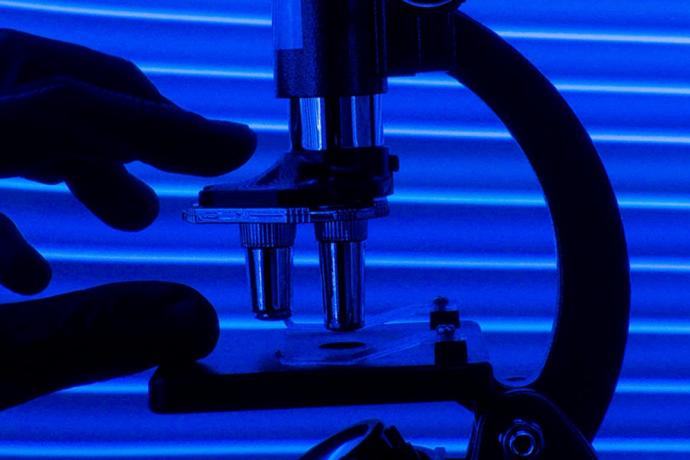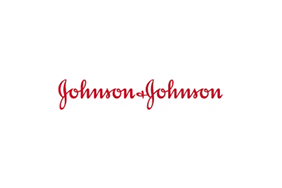
Now Reading
“I’m a Scientist Working on a Potential Covid-19 Vaccine”: Meet a Researcher Who's Studying a Promising Candidate
Roland Zahn, Ph.D., a Janssen scientist and expert in viral vaccines, was at the front lines of research during the Ebola outbreak. Today he and his team are working at record speed to help deliver a potential vaccine for the novel coronavirus.
“I’m a Scientist Working on a Potential Covid-19 Vaccine”: Meet a Researcher Who's Studying a Promising Candidate
Roland Zahn, Ph.D., a Janssen scientist and expert in viral vaccines, was at the front lines of research during the Ebola outbreak. Today he and his team are working at record speed to help deliver a potential vaccine for the novel coronavirus.
Published 04-17-20
Submitted by Johnson & Johnson

Weeks before many people had even heard of the novel coronavirus, Roland Zahn, Ph.D., was already studying the disease—specifically, how it could be stopped.​
As the Senior Scientific Director of Preclinical Immunology of Viral Vaccines at the Janssen Pharmaceuticals Companies of Johnson & Johnson, Dr. Zahn is facing what may prove to be the biggest challenge of his career: helping to develop and test a vaccine for Covid-19.
“It’s been a very stressful time,” says Dr. Zahn, who's been working on prospective vaccine candidates for the virus since January. “But it’s stressful in a good way because you know you’re part of working on a potential solution to help stop this global pandemic.”
On March 30, Johnson & Johnson announced it had identified a lead vaccine candidate for Covid-19, so we sat down with Dr. Zahn to hear more about his role leading up to this milestone in the vaccine discovery process—and how his past experiences researching viruses like HIV and Ebola have helped pave the way for the potentially lifesaving work he is doing now.
Roland Zahn, Ph.D.: It wasn’t until after I completed my Ph.D. in biochemistry in 2005, and spent some time in academia, that I became interested in vaccine development.
In academia, my work was focused on understanding the interaction of viruses with the immune system—namely, how is that relationship balanced to provide protection from viruses without causing an immune response in the body? How can certain viruses coexist with a person for a prolonged period of time without causing apparent disease?
My work in academia was important, but I wanted to have a job where I could have a visible impact on people’s lives. While it is possible to do translational research in academia—that is, lab research that can be used to develop new treatments or procedures—you can’t really see your work through to the final stage when it becomes a licensed medical product. And that’s the stage where you’re really helping people.
So after I completed my postdoctoral work, I took a job at a biotech company that was focused on developing vaccines for such viral diseases as HIV, which causes AIDS, and respiratory syncytial virus (RSV), which causes infections in the lungs and respiratory tract.
What I love about working on vaccines is that they can help improve human health equally for people in developed and developing nations. Human suffering can sometimes seem far away when you’re working in a laboratory where everything feels under control, but working on a vaccine when there is an outbreak going on is very different. People are dying, which does change your perception of why you’re working in the lab—there’s a very clear purpose for why you are there.
I first experienced this with Ebola.
In 2009, I had started work on a filovirus vaccine. Filoviruses, which include Ebola, are a type of virus that can cause hemorrhagic fevers.
Then, in 2014, everything changed: There was an Ebola outbreak in West Africa that was larger than all previous outbreaks combined. More than 28,000 people became sick, more than 11,000 people died—and there was a race to develop a vaccine, like the one I had been working on.
Janssen ultimately deployed its investigational vaccine to the Democratic Republic of the Congo and neighboring countries to help with what has become the second largest Ebola outbreak in history. To date, more than 50,000 people have been vaccinated with the first dose of our Ebola vaccine.
I spent time in Africa prior to this happening, so I felt very attached to the people there and their needs as they faced the possibility of becoming infected with Ebola.
Facing a Global Pandemic With Equal Purpose and Passion
When we first learned about the novel coronavirus outbreak in China, our team of scientists quickly began work on developing a vaccine, knowing that coronaviruses have the potential to spread rapidly, as we observed with SARS.
And the speed of our work on this potential vaccine for Covid-19 really is unprecedented in vaccine development.
The process of designing, testing, selecting and manufacturing a vaccine typically takes several years, but in this case, we are seeking to compress it to eight months. The entire research community came together quickly to share information about Covid-19, which has really helped us accelerate our response.
My team and I are specifically responsible for testing vaccine candidates to elicit protective immunity to the virus, working very closely with Jerome Custer, Senior Scientific Director of Vaccine Research at Janssen, who is designing the vaccine candidates with his team.
Since February, we have been conducting preclinical testing of the potency of more than 10 potential Covid-19 vaccine candidates. On March 30, we announced the selection of our lead candidate, with two backups, and we expect to begin clinical studies of this candidate in September, aiming to have clinical data on its safety early next year.
Our team of scientists has learned a great deal from the work we’ve done responding to epidemics in the past. The technology we’re using to develop the Covid-19 vaccine was also used to develop our investigational Ebola vaccine, as well as vaccine candidates for the Zika virus, RSV and HIV.
Janssen's emphasis on developing global partnerships also plays a crucial role in our rapid response to the novel coronavirus pandemic. We have expanded our partnership with BARDA, the Biomedical Advanced Research and Development Authority, part of the Office of the Assistant Secretary for Preparedness and Response (ASPR) at the U.S. Department of Health and Human Services. And we’ve been collaborating with Beth Israel Deaconess Medical Center, which is part of Harvard Medical School, on evaluating and testing prospective Covid-19 vaccines.
These partnerships are allowing us to develop a vaccine quickly. By identifying a vaccine, working on manufacturing, and preparing for the first clinical trials at the same time, we’re able to move as quickly as possible to deliver a vaccine at the same level of safety as in our other vaccine programs.
Janssen's goal is to manufacture over 1 billion doses of the potential preventive vaccine by the end of 2021.
Working in vaccine development means you’re always addressing an unmet medical need. Now we’re in a pandemic for which we weren’t fully prepared, so this work is even more urgently needed and important.

Johnson & Johnson
Johnson & Johnson
Caring for the world, one person at a time... inspires and unites the people of Johnson & Johnson. This year, we celebrate 126 years of embracing research and science – bringing innovative ideas, products and services to advance the health and well-being of people. Employees of the Johnson & Johnson Family of Companies work in more than 250 operating companies in 60 countries throughout the world. The passion and commitment of our people yield innovations that further minimize our impact on the planet, drive new alliances to address major health challenges in developing and developed countries, and help to create economic opportunity for people. Improving human health and well-being is our crucial mission and the ultimate measure of upholding our responsibility now and for generations to come.

At Johnson & Johnson, our top priority is health-health of people and the planet. That's why we set aggressive corporate wide goals to reduce our environmental impact, outlined in our Healthy Future 2015 goals. To this end, we established the proprietary Earthwards® process for developing and marketing greener products through lifecycle analysis. Every Earthwards® recognized product must achieve a greater than 10 percent improvement in at least three of the seven goal areas:
- Materials used
- Packaging reduction
- Energy reduction
- Waste reduction
- Water reduction
- Positive social impact or benefit
- Product innovation

More from Johnson & Johnson
